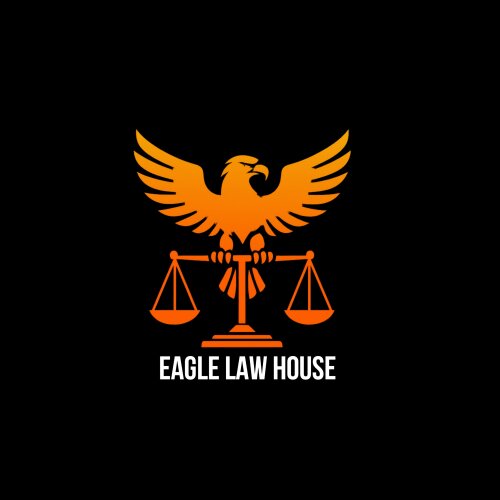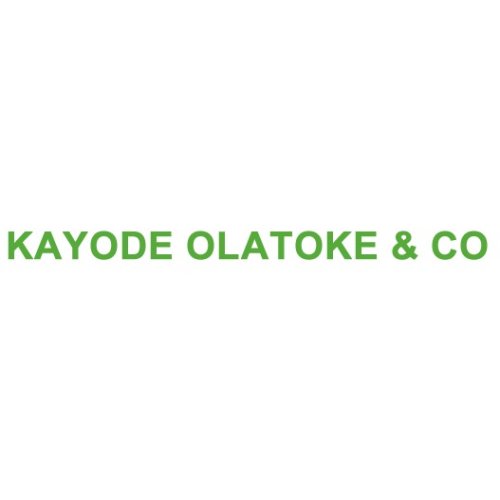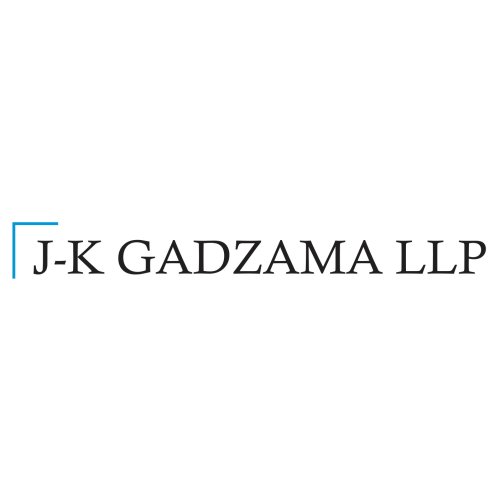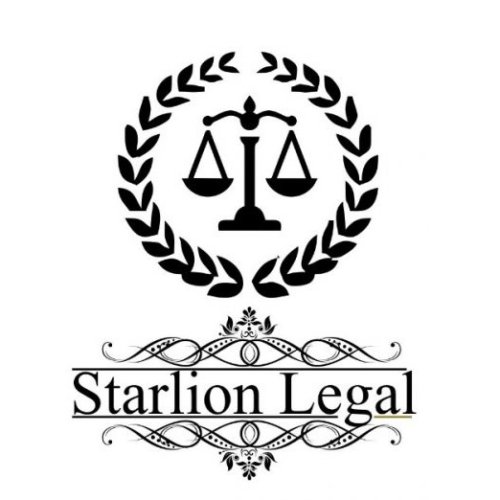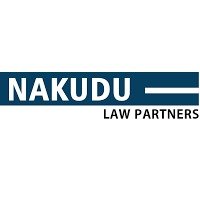Best Conveyancing Lawyers in Abuja
Share your needs with us, get contacted by law firms.
Free. Takes 2 min.
Free Guide to Hiring a Real Estate Lawyer
List of the best lawyers in Abuja, Nigeria
About Conveyancing Law in Abuja, Nigeria
Conveyancing is the legal process of transferring ownership of property from one person or entity to another. In Abuja, Nigeria's Federal Capital Territory, conveyancing involves several legal, administrative, and documentary steps governed by specific laws and regulations. Whether you are buying, selling, or leasing property, understanding conveyancing is essential to ensure the transfer is valid, your interests are protected, and all legal obligations are met.
Why You May Need a Lawyer
Many people encounter complex issues during property transactions that require professional legal guidance. Common situations where a lawyer can be invaluable include:
- Buying or selling a home, land, or commercial property
- Leasing property, including preparation and review of lease agreements
- Conducting thorough title searches and verification of ownership
- Managing disputes over land boundaries or defective titles
- Navigating government regulations regarding land use
- Handling mortgages and other security interests on property
- Transferring inherited property (probate conveyancing)
- Dealing with compulsory government acquisition or compensation claims
- Preventing scams, fraud, or double sales of property
A lawyer helps by providing legal advice, preparing and reviewing documents, representing your interests during negotiations, and ensuring the conveyance complies with all legal requirements.
Local Laws Overview
Conveyancing in Abuja is primarily governed by the Nigerian Land Use Act, 1978, which vests all land in each state or territory to the government for the common benefit of Nigerians. In Abuja, the Federal Capital Territory Administration (FCTA) has authority over land management, alongside the Abuja Geographic Information Systems (AGIS) as the official land registry.
Key aspects of local conveyancing laws include:
- Certificate of Occupancy: Every landowner or lessee in Abuja must have a Certificate of Occupancy (C of O) issued by the Minister of the FCT. This document confirms legal rights to occupy and use the land.
- Governor's Consent: Legal transfers of interest in land require the written consent of the Minister of the FCT, in line with the Land Use Act.
- Deed Registration: All title documents, including Deeds of Assignment, Sublease, and Powers of Attorney, must be registered with AGIS to be legally recognized.
- Land Tenure: Land rights in Abuja are often granted as leaseholds, not outright ownership, for 99-year periods. Rights can be transferred subject to official approval.
- Due Diligence: Conducting proper searches at AGIS and confirming the legal status of land is essential to prevent issues such as double allocation or encroachment.
Navigating these processes without legal help can be risky and may lead to loss of investment or protracted disputes.
Frequently Asked Questions
What is the first step when buying property in Abuja?
The first step is to carry out a due diligence or title search at Abuja Geographic Information Systems to confirm the legal status of the property-verify the owner's rights, ensure there are no encumbrances, and check for any government interest or litigation affecting the property.
What documents are needed for a property transfer in Abuja?
Common documents include a valid Certificate of Occupancy, Deed of Assignment, evidence of payment (purchase receipts), approved building plans, tax clearance certificates, and the Minister's consent to assign or transfer the property.
Is it possible to own land outright in Abuja?
In Abuja, all land is owned by the government and is typically allocated to individuals or entities through leaseholds for 99 years. Outright or perpetual ownership as in some other countries is not the norm under the Land Use Act.
Why is the Minister's consent necessary in every property transaction?
The Land Use Act requires consent from the state's Governor or, in the case of Abuja, the Minister of the FCT, before any valid assignment, sale, mortgage, or transfer of land interests. Without this consent, a transfer is not legally recognized.
How long does the conveyancing process take?
The duration depends on various factors, including the completeness of documentation and efficiency of the government agencies involved. Generally, it can take several weeks to several months to complete.
What is a Deed of Assignment?
A Deed of Assignment is a key legal document prepared and executed to transfer ownership from the seller to the buyer. It details the terms of sale, parties involved, and description of the property.
What risks can be prevented by working with a lawyer?
A lawyer helps you avoid risks such as buying from fraudsters, purchasing land with faulty titles, or investing in property under government acquisition, improper documentation, and unresolved disputes.
Do I pay taxes or fees when buying property in Abuja?
Yes, buyers typically pay statutory fees, stamp duties, registration fees, consent fees, and capital gains tax. Your lawyer can provide a breakdown of applicable costs.
Can foreigners buy property in Abuja?
Yes, foreigners can hold interests in land, subject to compliance with the Land Use Act and obtaining necessary government consents. There may be additional documentation or requirements for non-Nigerians.
What happens if property documents are lost or destroyed?
You need to obtain a sworn affidavit as proof of loss, request a police report, and apply for a certified true copy of the lost document from Abuja Geographic Information Systems. Professional legal assistance is advised.
Additional Resources
Several organizations and governmental bodies regulate land and property transactions in Abuja. These resources can be helpful:
- Abuja Geographic Information Systems (AGIS): Official land registry for searches and documentation
- Federal Capital Territory Administration (FCTA): Supervises land allocation and approval
- Federal Ministry of Works and Housing
- Nigerian Bar Association (NBA), Abuja Branch: For referrals to licensed conveyancing lawyers
- Real Estate Developers Association of Nigeria (REDAN)
Specific government offices and courts can also provide guidance in situations involving disputes or legal clarifications.
Next Steps
If you are considering buying, selling, or dealing with property in Abuja, the following steps can guide you:
- Identify and document your interest in the property (buying, selling, leasing, inheritance, etc)
- Engage a qualified lawyer who specializes in conveyancing
- Request a legal due diligence or title search from your lawyer to verify property status
- Review and prepare all necessary legal documents with your lawyer's assistance
- Obtain all mandatory consents and approvals from relevant authorities
- Complete all registration and stamp duty processes at AGIS
- Maintain copies of all conveyancing documents for future reference
Remember, legal advice is crucial at every stage of conveyancing in Abuja to avoid costly mistakes or disputes and to ensure your rights and investments are fully protected.
Lawzana helps you find the best lawyers and law firms in Abuja through a curated and pre-screened list of qualified legal professionals. Our platform offers rankings and detailed profiles of attorneys and law firms, allowing you to compare based on practice areas, including Conveyancing, experience, and client feedback.
Each profile includes a description of the firm's areas of practice, client reviews, team members and partners, year of establishment, spoken languages, office locations, contact information, social media presence, and any published articles or resources. Most firms on our platform speak English and are experienced in both local and international legal matters.
Get a quote from top-rated law firms in Abuja, Nigeria — quickly, securely, and without unnecessary hassle.
Disclaimer:
The information provided on this page is for general informational purposes only and does not constitute legal advice. While we strive to ensure the accuracy and relevance of the content, legal information may change over time, and interpretations of the law can vary. You should always consult with a qualified legal professional for advice specific to your situation.
We disclaim all liability for actions taken or not taken based on the content of this page. If you believe any information is incorrect or outdated, please contact us, and we will review and update it where appropriate.




